LG gram 14 2-in-1 vs. Surface Pro 6: Which should you buy?
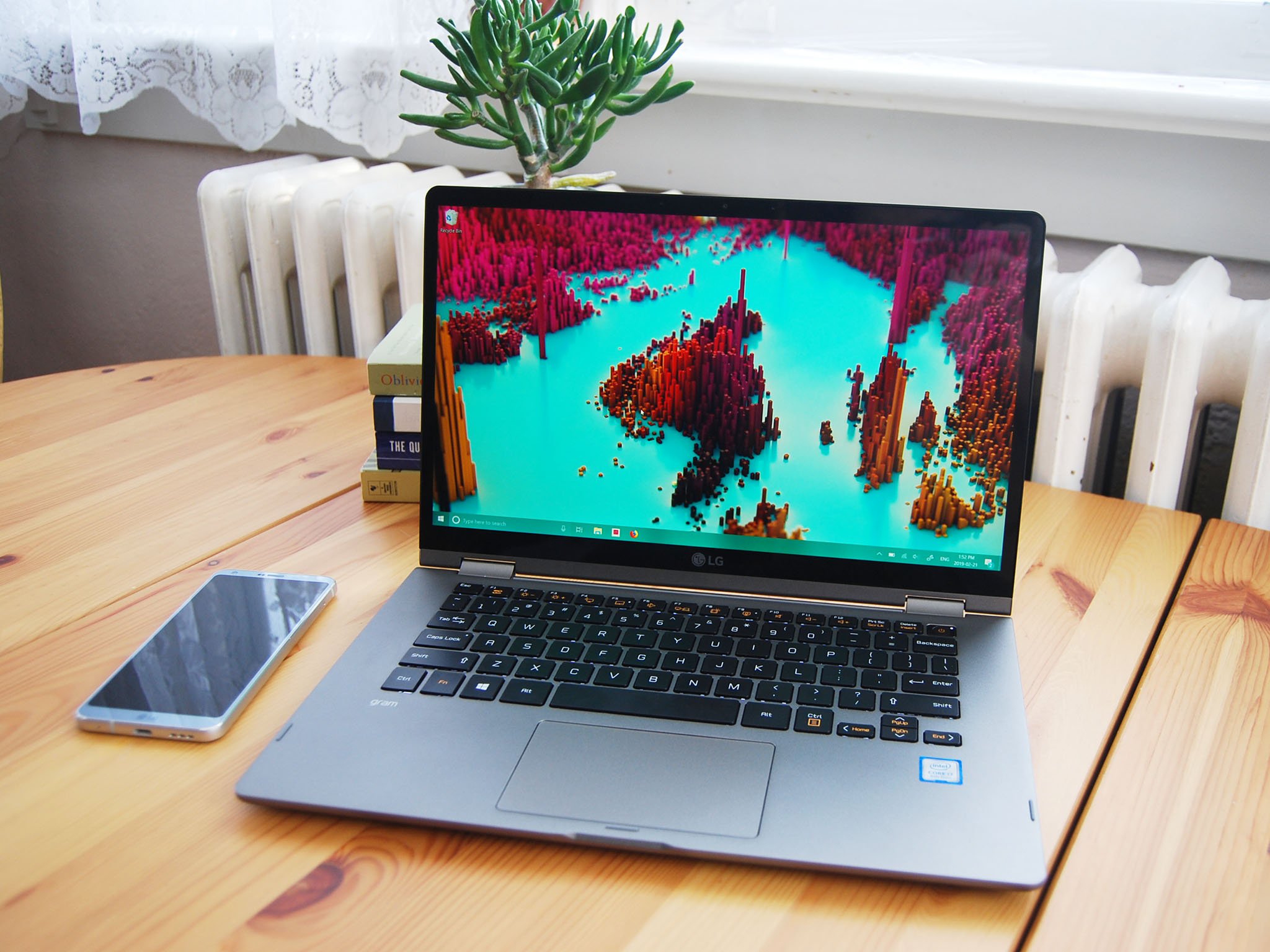
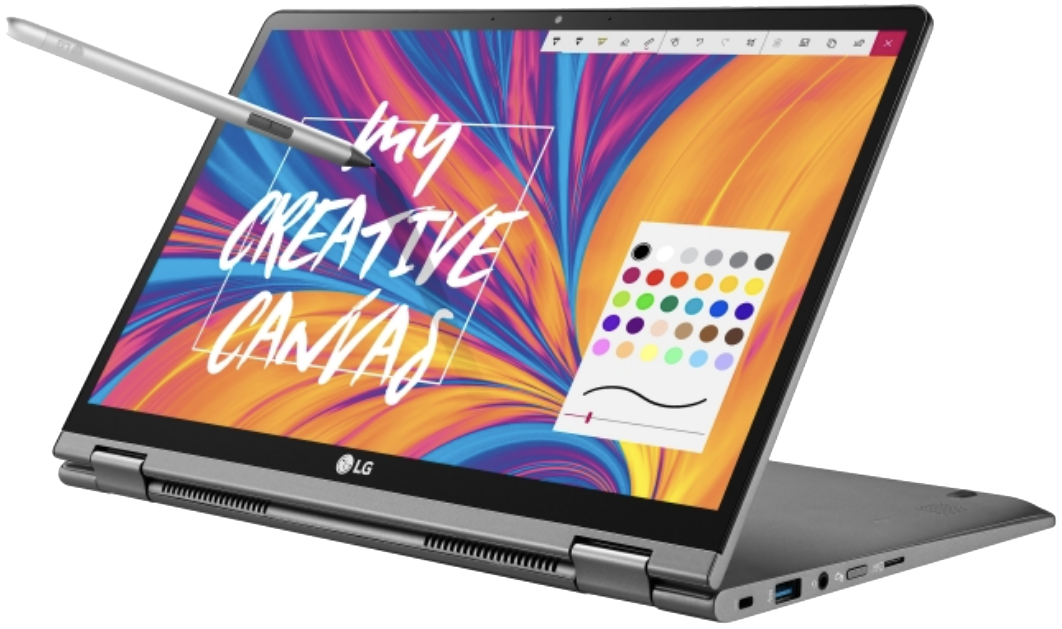
True convertible
Despite the "2-in-1" name, LG's gram 14 2-in-1 is a true 14-inch convertible laptop that weighs just 2.5 pounds. The lone configuration available delivers powerful performance, has a better port selection than the Surface Pro 6, and the keyboard is one of the best we've tested. However, the touch display doesn't go any higher than 1080p, the SATA solid-state drive (SSD) is slow, and you might want a true 2-in-1 experience, which the Surface Pro 6 delivers.
For
- Light, premium build
- Superb keyboard
- All-day battery life
- Solid performance
- Plenty of ports
Against
- Slow storage
- Not a true 2-in-1 experience
- Display tops out at 1080p
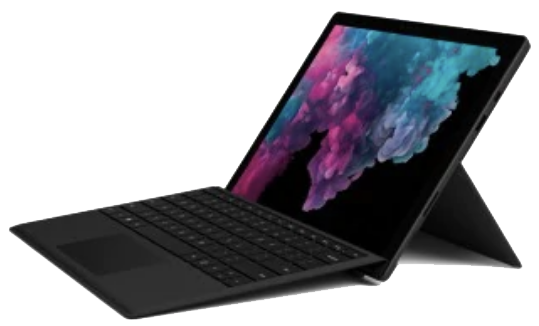
Ultimate 2-in-1
The Pro 6 is built to premium Surface standards, meaning you're getting a sleek device with a high-res touch display, a satisfying inking experience when coupled with the Surface Pen, and a slim tablet that can be used on its own or with a Type Cover. These accessories are sold separately so you can quickly see the price climb, and the port selection on the Pro 6 doesn't come close to what the gram 14 2-in-1 has to offer.
For
- Premium quality build
- True 2-in-1 experience
- Stellar touch display
- Superior inking experience
- Plenty of configuration options available
Against
- No USB-C or Thunderbolt 3
- Type Cover and Surface Pen not included
If you're deciding between these two devices, it's going to come down to if you want a true 2-in-1 experience or a convertible laptop. Both the LG gram 14 and the Surface Pro 6 offer a full-day battery life, slim form factors, and touchscreen experience perfect for travelers and movers, but only one of them also functions as a tablet with fantastic inking capabilities.
LG gram 14 2-in-1 vs. Surface Pro 6 tech specs
| Header Cell - Column 0 | LG gram 14 2-in-1 | Surface Pro 6 |
|---|---|---|
| OS | Windows 10 Home | Windows 10 HomeWindows 10 Pro |
| Processor | 8th GenIntel Core i7-8565U | 8th GenIntel Core i5-8250UIntel Core i5-8350UIntel Core i7-8650U |
| RAM | 16 GB DDR4 | 8, 16 GB DDR3 |
| Storage | 512 GB SATA3 SSD | 128, 256, 512 GB SSD1 TB SSD |
| Display size | 14 inches touch | 12.3 inches touch |
| Display resolution | 1920x1080 (FHD) IPS | 2736x1824 |
| Aspect ratio | 16:9 | 3:2 |
| Graphics | Intel UHD Graphics 620 | Intel UHD Graphics 620 |
| Ports | HDMIUSB-C 3.1Two USB-A 3.1microSD card reader3.5 mm audio | USB-A 3.0Mini DisplayPortSurface ConnectmicroSD card reader3.5 mm audio |
| Biometrics | Fingerprint reader | IR camera |
| Battery | 72 Wh | 45 Wh |
| Dimensions | 12.8 inches x 8.3 inches x 0.7 inches(325.12 mm x 210.82 mm x 17.78 mm) | 11.5 inches x 7.9 inches x 0.33 inches(292 mm x 201 mm x 8.5 mm) |
| Weight | 2.53 pounds (1.15 kg) | From 1.71 pounds (775 g) |
Convertible against 2-in-1
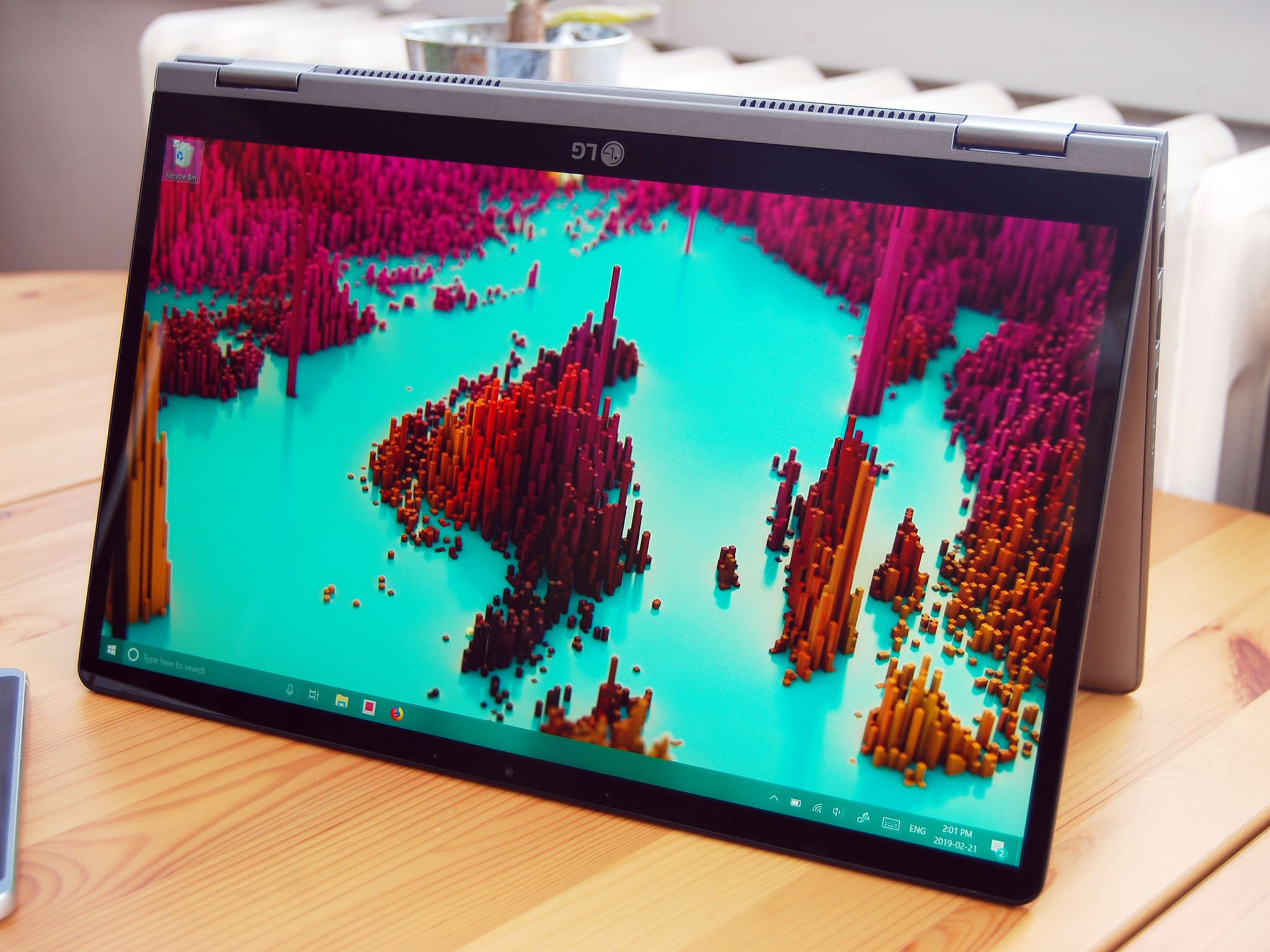
Despite the name of the LG gram 2-in-1, it's actually a convertible laptop with a dual-hinge setup. It works perfectly well as a notebook, but the lid and display can rotate around for tent, stand, and tablet modes as well. If you like the idea of a laptop that can sit sturdily on your lap or be used as a tablet for inking, it's probably the better choice.
The Surface Pro 6 is a true 2-in-1, meaning it's a tablet with a Type Cover keyboard and touchpad that is completely detachable. It has a kickstand on the back that can be used to prop it up like a notebook, but it's not going to have the same stability or comfort when on your lap as the gram.
The LG gram 2-in-1 is actually a convertible laptop, but the Surface Pro 6 is a true 2-in-1.
Both of these laptops are light and portable, though the gram 14 is a bit more impressive when it comes to relative size. It's a 14-inch laptop that weighs in at just 2.53 pounds, yet it's sturdy and relatively durable thanks to the magnesium alloy body. The Surface Pro 6, without a Type Cover attached, weighs in at 1.71 pounds, though it overall has a smaller footprint than the gram due to the 12.3-inch display. In either case, you won't have a problem slipping the laptop under your arm or into a backpack when on the move.
The Pro 6's Type Cover keyboard delivers a satisfying typing experience, and it is available with an Alcantara fabric finish for a bit of extra comfort. It hardly adds any bulk to the tablet when folded up, and it has a Precision touchpad for a full gamut of Windows 10 gestures. The gram's keyboard is outstanding for anyone who types a lot every day, and the smooth touchpad is also using Precision drivers. Before buying either laptop, it's always recommended you give the keyboard a try, as only you will know which one feels better for your needs, but know that both are among the best out there.
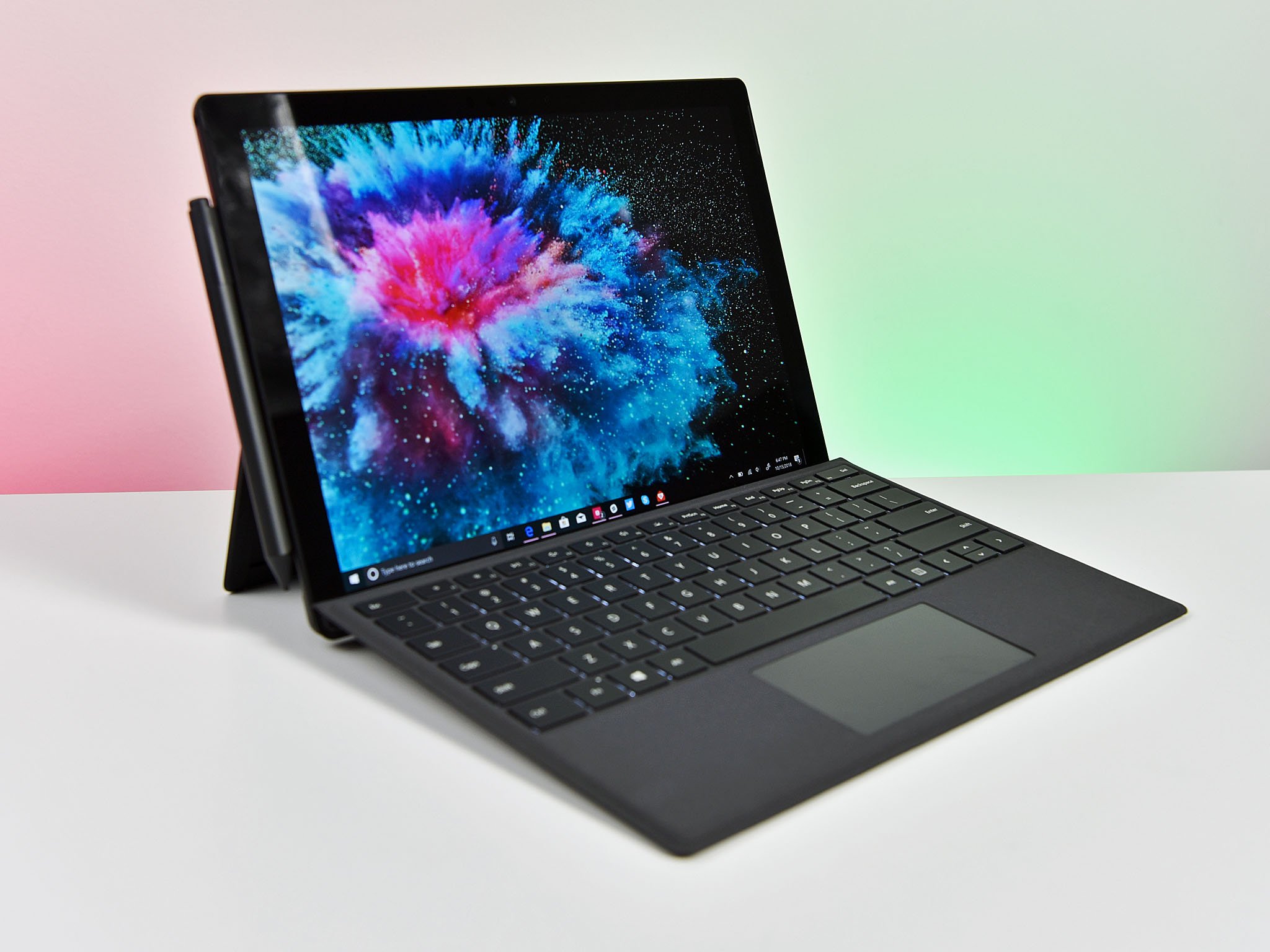
The gram's thicker body allows for more ports, and LG took advantage. Here you get HDMI, USB-C 3.1, two USB-A 3.1, a 3.5 mm audio jack, and a microSD card reader for plenty of connectivity. The only drawback is no Thunderbolt 3, but that's also missing on the Pro 6. Microsoft seems hesitant to upgrade its port selection, and the Pro 6 comes with a single USB-A 3.0, Mini DisplayPort, a 3.5 mm audio jack, a microSD card reader, and a proprietary Surface Connect port.
Both laptops are compatible with Windows Hello for quick and secure logins, but the hardware differs. The Pro 6 uses an IR camera to quickly scan your face when you want to sign in, while the gram 14 2-in-1 uses a fingerprint reader built into the power button. Both work well and will provide that extra bit of security with hardly any work on your part.
Get the Windows Central Newsletter
All the latest news, reviews, and guides for Windows and Xbox diehards.
Bottom line here is that if you want a laptop that's primarily a notebook but does have the ability to be used as a tablet, the gram 14 2-in-1 is a better choice. However, if you love the idea of a tablet that can be used as a notebook, the Pro 6 is likely better. Port selection is especially important here, as is the overall size of the device you're comfortable with using.
Display resolution or display size?
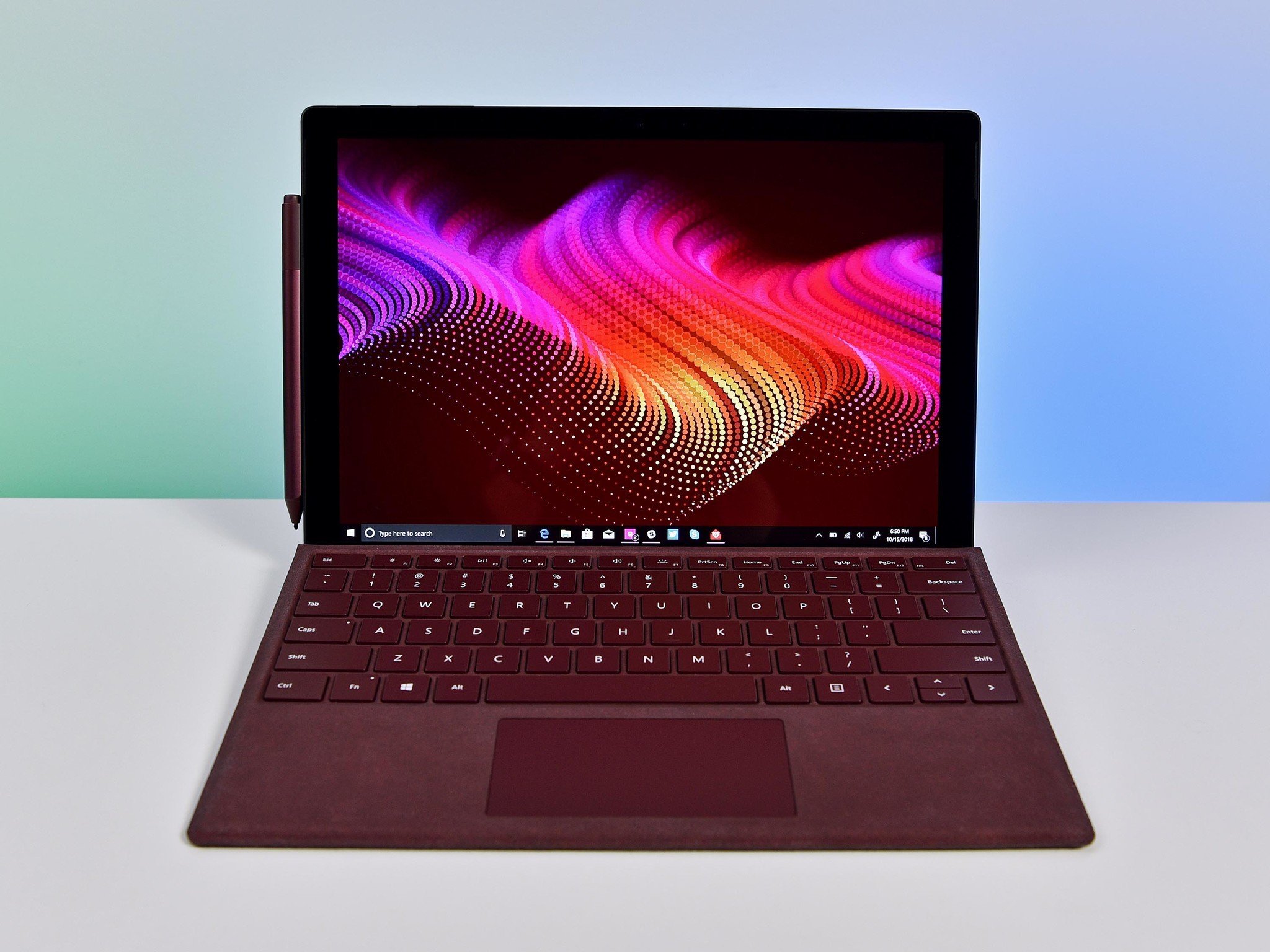
Buying a laptop without a display with the right resolution or size for your needs is unwise, as it's going to be used every time you open the lid. Here, you basically pick between a larger but lower resolution display in the gram or a smaller but higher resolution display in the Pro 6.
The gram 14 2-in-1 maxes out at 1080p but measures 14 inches, giving you a bit of extra real estate for doubling up windows or other productivity reasons. At this size, 1080p is suitable, and many people won't feel the need for any more pixels. It hits 99% sRGB color reproduction for a vivid picture, and it gets up to somewhere between 260 and 300 nits brightness. It does have a glossy finish that can be hard to work with in a sun-filled room, but you'll have the same issues with the glossy display on the Pro 6.
If 1080p just won't cut it — maybe you prefer the higher resolution for photo editing or just want a crisper picture — the Pro 6 has a 2736x1824 resolution. If that seems like an odd number, it's because the display has a 3:2 aspect ratio that makes it boxier than the 16:9 ratio on the gram. Some people prefer one aspect ratio over the other, and it's really up to personal preference here. As for color accuracy, the Pro 6 hits 97% sRGB, which is slightly lower than the gram but hardly noticeable in everyday usage.
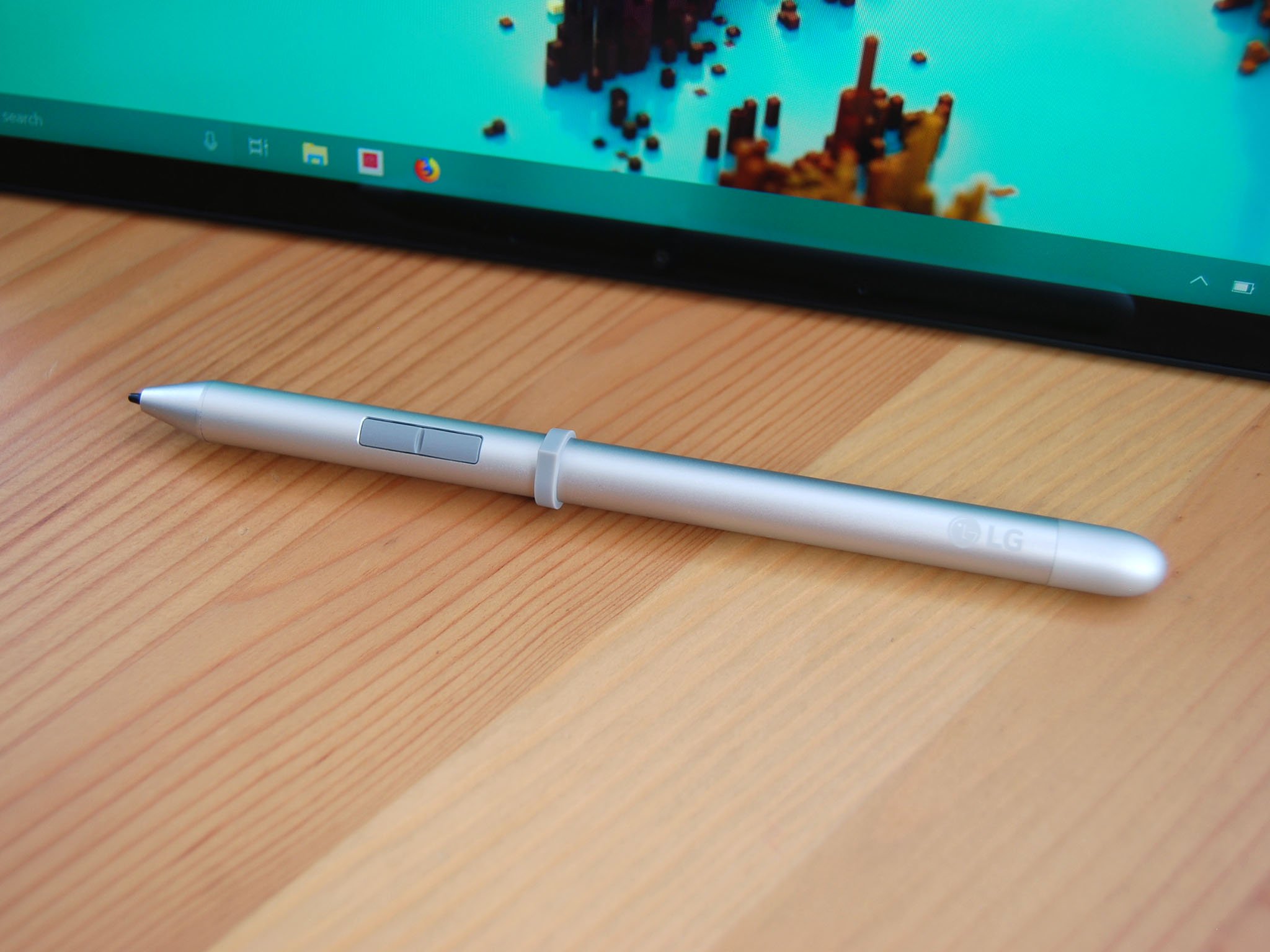
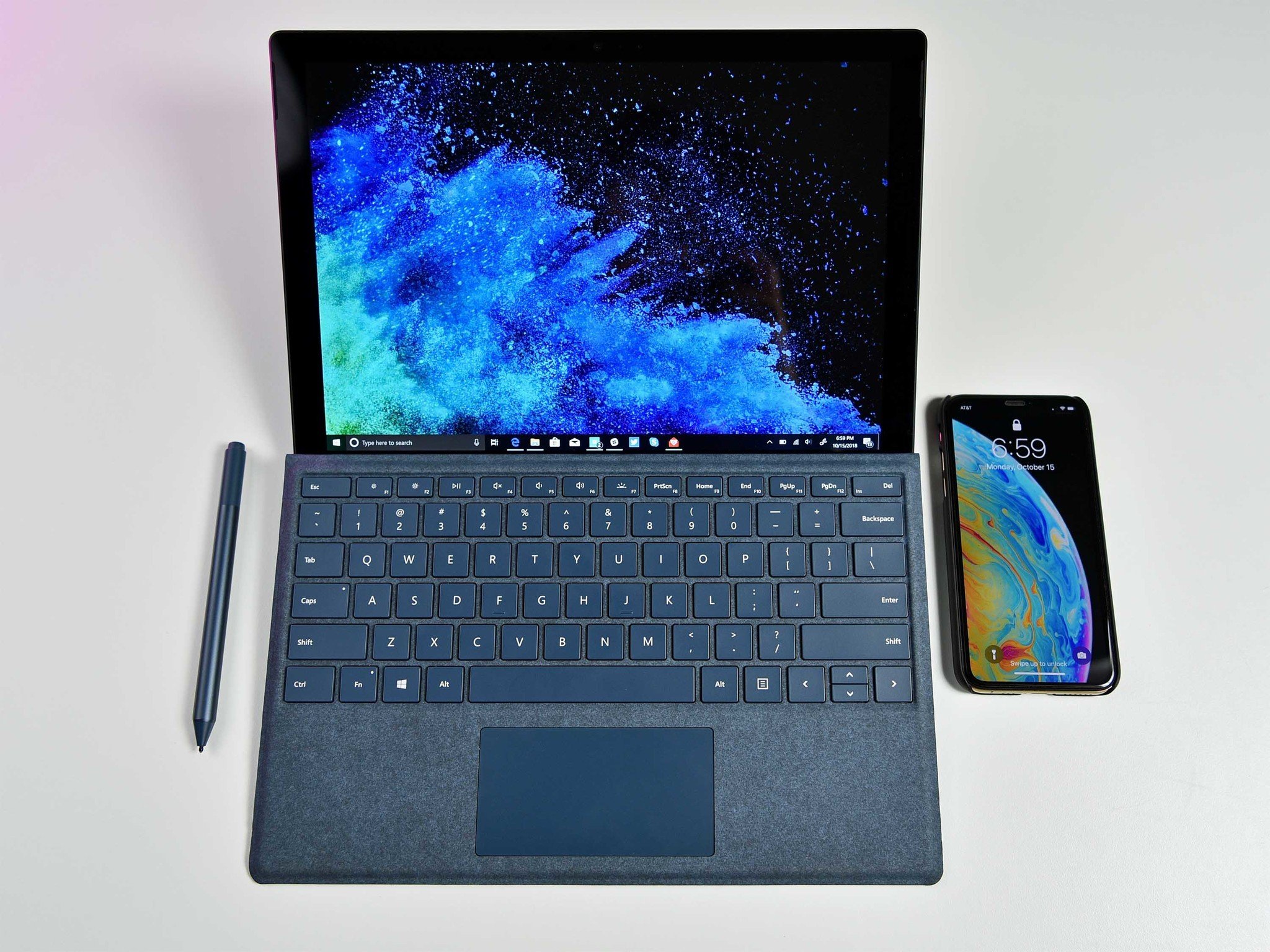
Both laptops are compatible with active pens, though only the gram 14 2-in-1 comes with one included; you'll have to buy a Surface Pen separately for use with the Pro 6. The gram's pen is based on Wacom AES 2.0 tech and delivers 4,096 level of pressure sensitivity and tilt support for a robust inking experience, though I did not find the pen to be as comfortable to use as the Surface Pen.
Using the Pro 6 for inking, you'll get the same 4,096 levels of pressure sensitivity and tilt support, plus you can add extra accessories — like the Surface Dial — for increased versatility. When not in use, the Surface Pen clips magnetically to the side of the Pro 6 for safekeeping, whereas the gram's pen has no such attachment option. Overall the Pro 6 and Surface Pen are likely a better combination for artists out there, though the fact that it costs an extra $100 on top of the price of the Pro 6 might be a turnoff for some.
Performance and price
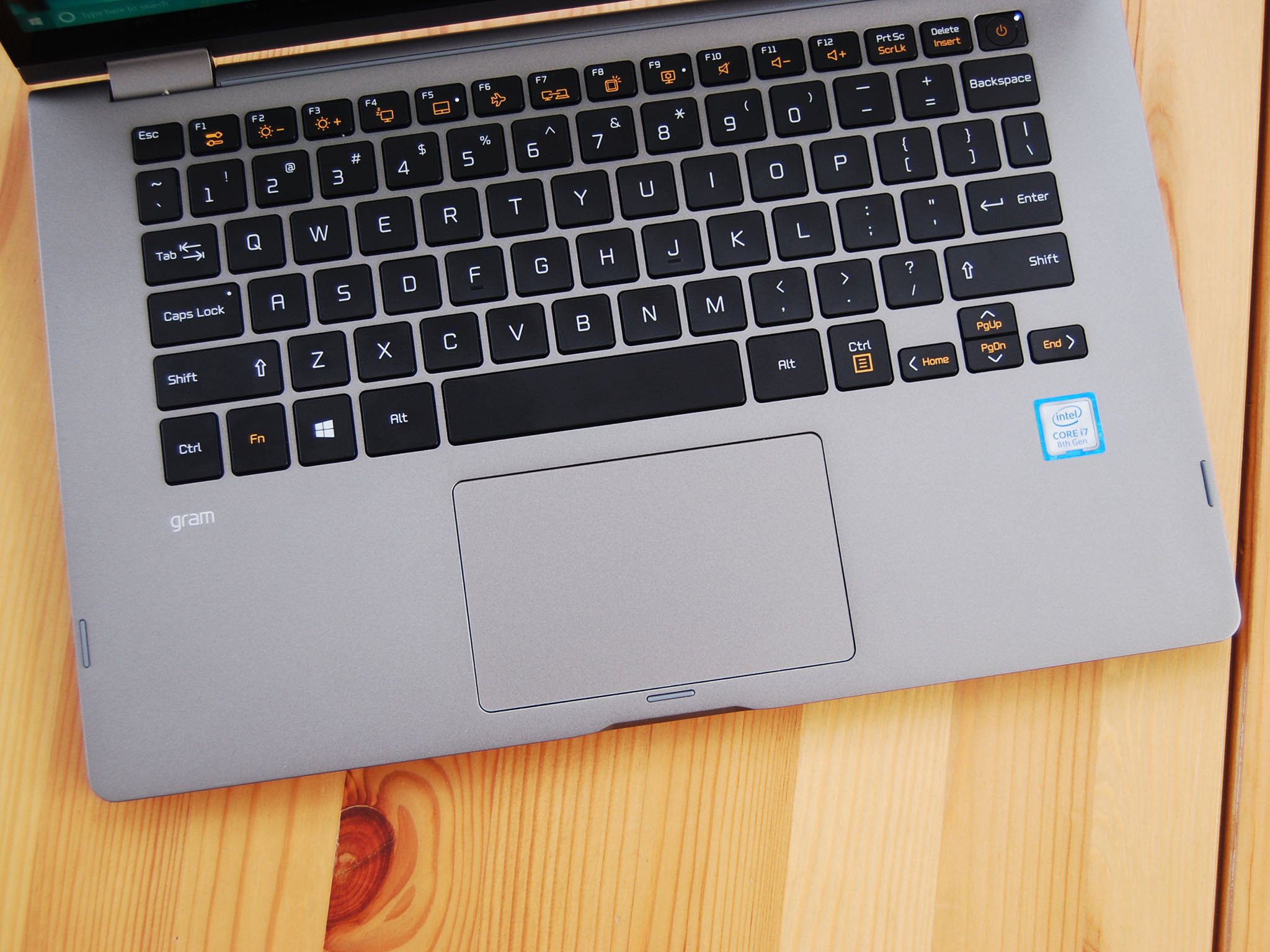
Comparing the Core i7 LG gram 14 2-in-1 (the only configuration available) and the Core i7 Pro 6 in a couple of synthetic benchmarks, performance is just about equal. The gram's Core i7-8565U processor (CPU) hit a 4,829 single-core and a 13,889 multi-core score in Geekbench 4.0, while the Pro 6's 8650U climbed to a 5,037 single-core and a 13,864 multi-core score. As for PCMark 8, the gram hit 3,452 while the Pro 6 hit 3,451. Putting those numbers into perspective, you shouldn't have any problems with either laptop tackling day-to-day work, though the lack of discrete GPU makes them not ideal for gaming or heavy media editing.
If you don't need the power of a Core i7 CPU, the Pro 6 does have some Core i5 configurations to choose, and you can specify how much storage (up to 1TB) and how much RAM (up to 16GB) you need. With the gram, you're stuck with the Core i7 CPU, 16GB of RAM, and a 512GB SSD. On that note, the gram is using SATA storage, making it far slower than the PCIe SSD in the Pro 6.
Although the Pro 6's battery is smaller than the gram's you're going to get a full workday of use without needing a charge. With the gram, you should also be able to reliably get between 8–9 hours of life.
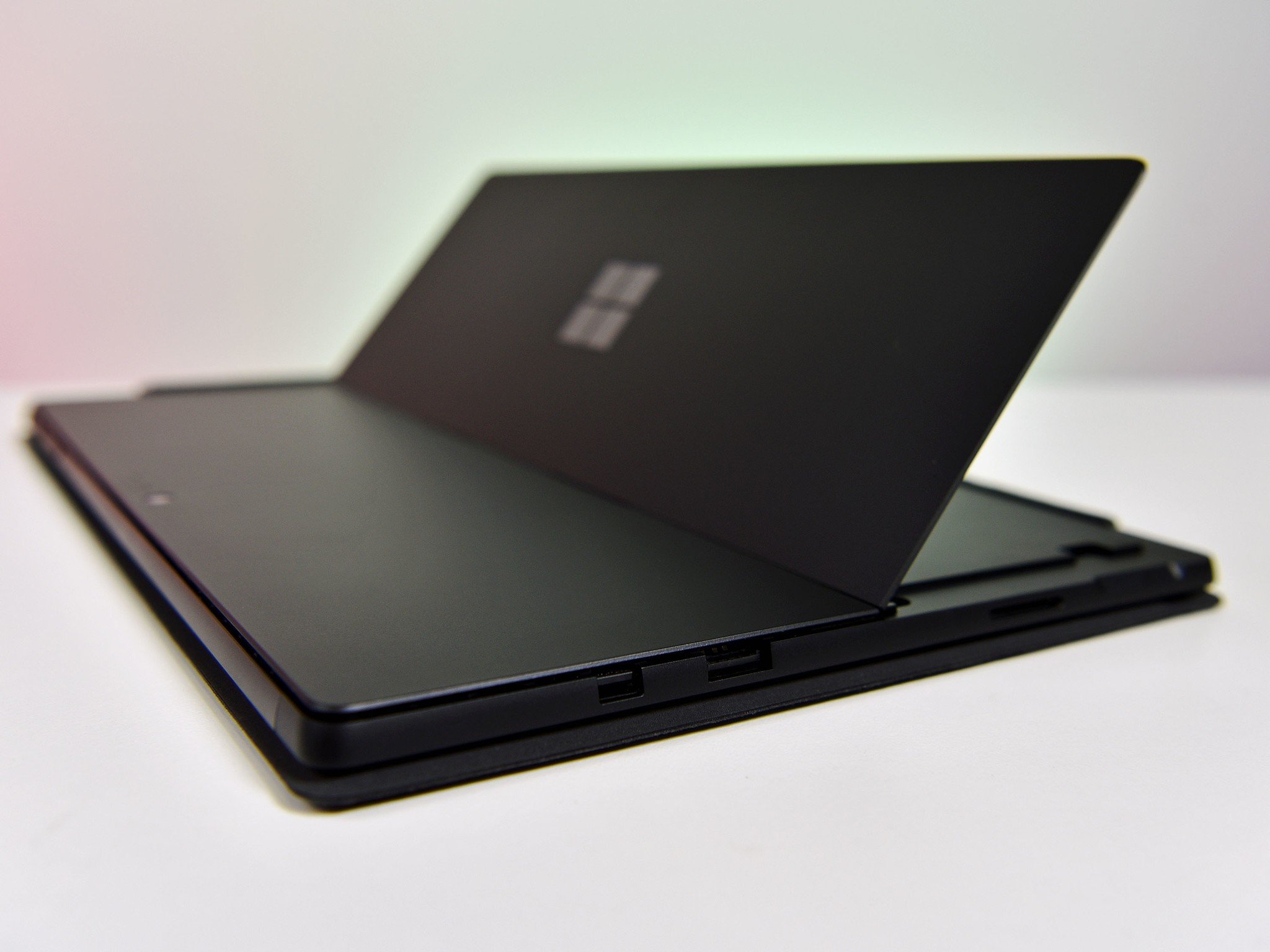
When it comes to price, the only gram configuration available costs a whopping $1,500. That's a big number compared to the starting price of the Pro 6, but remember that the hardware inside is essentially topped out and it comes with an active pen included.
The Surface Pro 6 starts at just $800, but that's with a Core i5 CPU, 128GB SSD, and 8GB of RAM. That price also doesn't include a Type Cover or Surface Pen, which altogether brings the cost up to more than $1,000. A Pro 6 with a 512GB SSD, 16GB of RAM, and a Core i7 CPU costs about $1,699 without adding a Type Cover or Surface Pen, so keep in mind that as you scale up in performance, the Pro 6 does become significantly more expensive than the gram 14 2-in-1.
Go with the LG gram 14 2-in-1 for a true convertible
If you'd rather have a notebook first and a tablet second, LG's gram 14 2-in-1 is probably your best bet. It initially costs more than the lower-spec Pro 6 models, but once you scale up the hardware, it actually becomes the cheaper option and includes an active pen in the box.

Outstanding convertible laptop with a slim chassis
LG's gram 14 2-in-1 takes a good thing and makes it convertible, bringing some necessary changes along the way. Active pen support is solid, the display is vivid, the magnesium alloy chassis can put up with daily abuse, and it's light enough that you'll hardly notice it's with you. Battery will get you through a full workday, and it offers more ports than the Pro 6.
Surface Pro 6 is a better choice for those who want a true 2-in-1
The Surface Pro 6 is likely going to be the winner for anyone who needs an actual 2-in-1 device with detachable keyboard and touchpad. It might cost more than the gram as you scale up to similar hardware, but it's well worth the price thanks to its premium quality build and outstanding touch display.

Perhaps the best 2-in-1 laptop on the market
Although it's pricey, Microsoft's premium Surface quality shines through on the Pro 6. The high-res touch display is outstanding and delivers a superior inking experience, and while it might not be as comfortable to use as a traditional notebook, it's ideal for anyone who loves the idea of a tablet that can quickly change into a productivity machine.

Cale Hunt brings to Windows Central more than eight years of experience writing about laptops, PCs, accessories, games, and beyond. If it runs Windows or in some way complements the hardware, there’s a good chance he knows about it, has written about it, or is already busy testing it.
